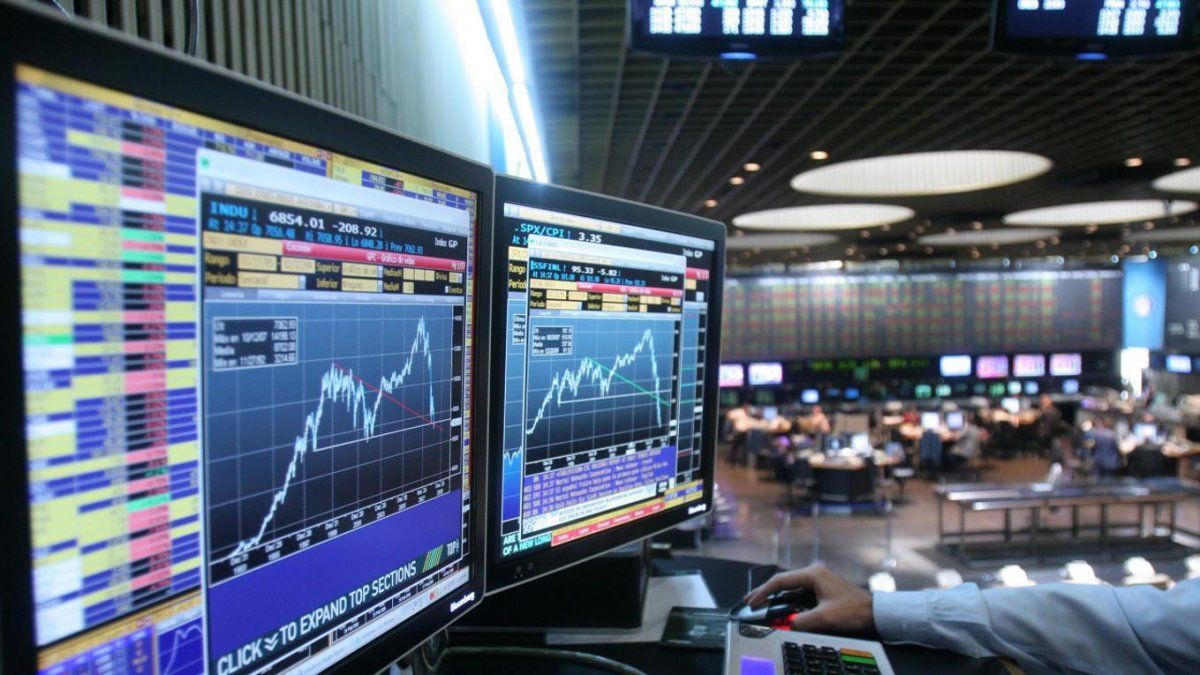The main New York indices operate with a negative trend with a sharp drop in the Nasdaq up to 2.6% to touch 10,774.62 points, after reaching a 3% drop. In this way, it loses almost all the rise that it registered in the previous day.
Meanwhile, the S&P500 index registered a decrease of 1.8% to 3,652.90 points, after falling 2.5%. Finally, the Dow Jones Industrials fell 1.2% and cut its initial fall of 2%, to 29,320.69 points.
According to official data, US Gross Domestic Product (GDP) fell 0.6% between April and June, pushing Wall Street’s Dow Jones down 1.31%.
S&P Merval and ADRs
In this context, the S&P Merval it lost 0.2%, to 138,265.46 points, against a gain of 1.88% on Wednesday, when an adverse streak of 9.37% in the previous three business rounds was cut.
Argentine stocks operating in wall street They fell to 4% headed Despegar, Corporación América (-3.7%), Globant (-3.6%) and Banco Superville (-2.9%).
Added to the complex external scenario are internal conditioning factors, given the fiscal deficit, exchange rate pressure and high inflation. For next week it is expected that the board of the International Monetary Fund (IMF) approve the review of the agreement with Argentina in the second quarter of the year, to unlock a disbursement of almost 4,000 million dollars.
Thanks to a special exchange rate that expires on Friday, soybean exporters sold merchandise that helped reinforce the hit reserves of the central bank (BCRA), which would close September with an accumulated increase of around 5,000 million dollars.
“Volatility is once again the great protagonist of the wheel (…) The greater aversion to risk at a global level pushes the dollar”reported Portfolio Personal Investments.
The Argentine Vice Minister of Economy Gabriel Rubinstein He wrote on his Twitter account that “Until we achieve currency unification, there will be some disorder and higher than normal business margins. But unifying the foreign exchange market, without a robust primary fiscal surplus, and almost without reserves, looks too risky.”
In a climate of internal and external uncertainty, analysts speculate that the Government is working on the implementation of a “Stabilization Plan” for the economy, as Ámbito anticipated.
“There is a lot of talk about a stabilization plan, but in this situation it is complex. There are issues under study within the economic team, but not with a finished and agreed idea. Measures are being taken with the aim of slowing down inflation,” he said. recently Agustín D’Attellis, director of the BCRA.
Source: Ambito
David William is a talented author who has made a name for himself in the world of writing. He is a professional author who writes on a wide range of topics, from general interest to opinion news. David is currently working as a writer at 24 hours worlds where he brings his unique perspective and in-depth research to his articles, making them both informative and engaging.




